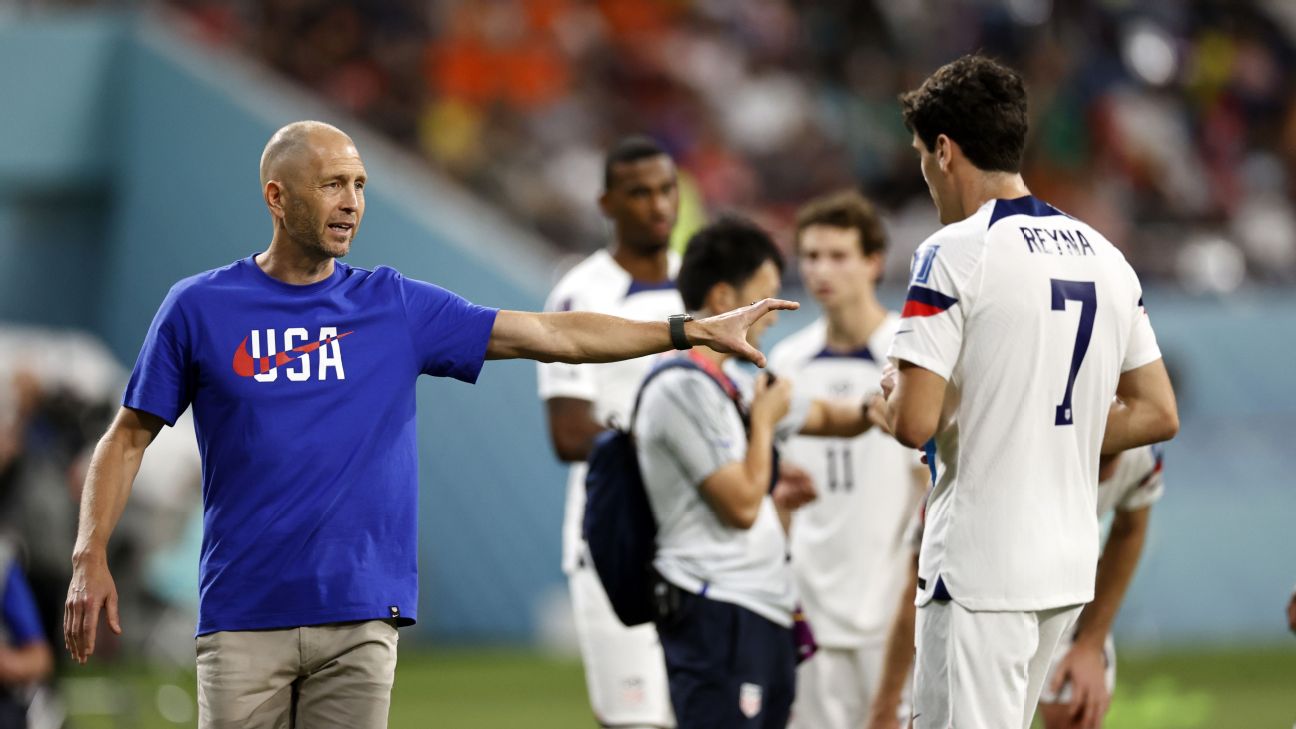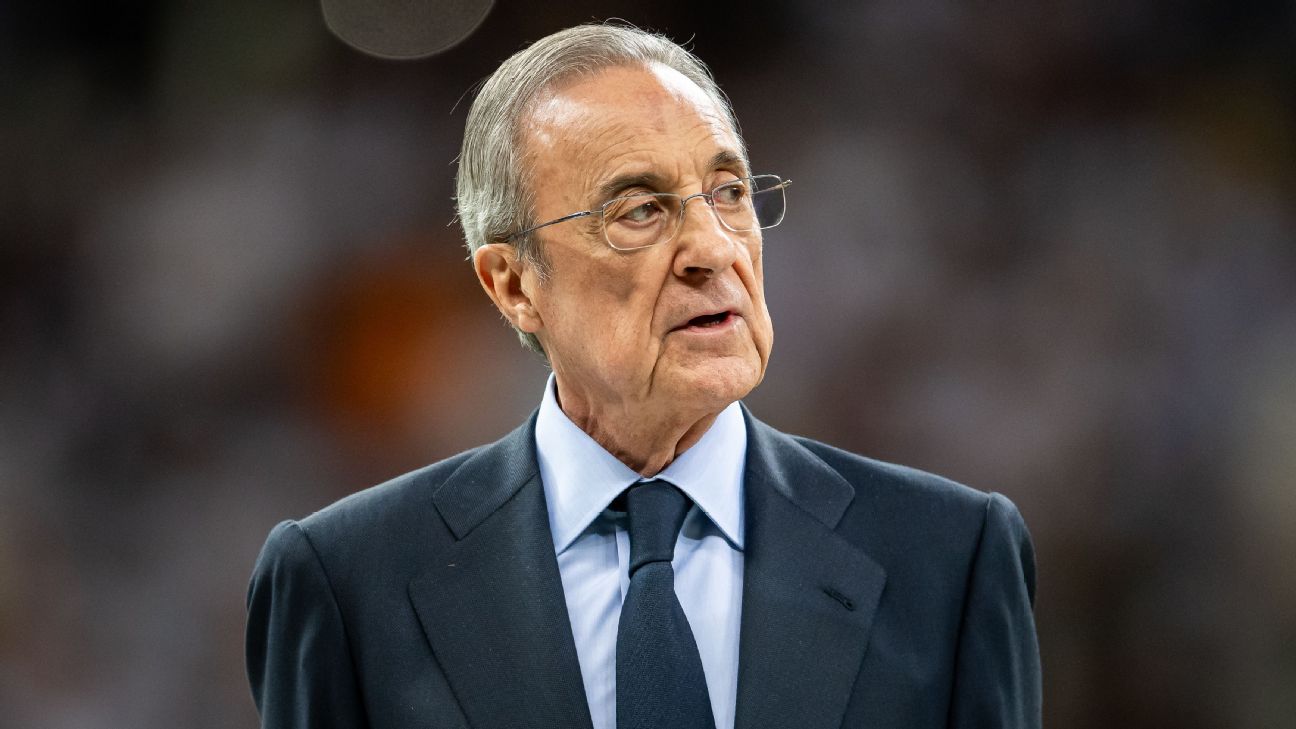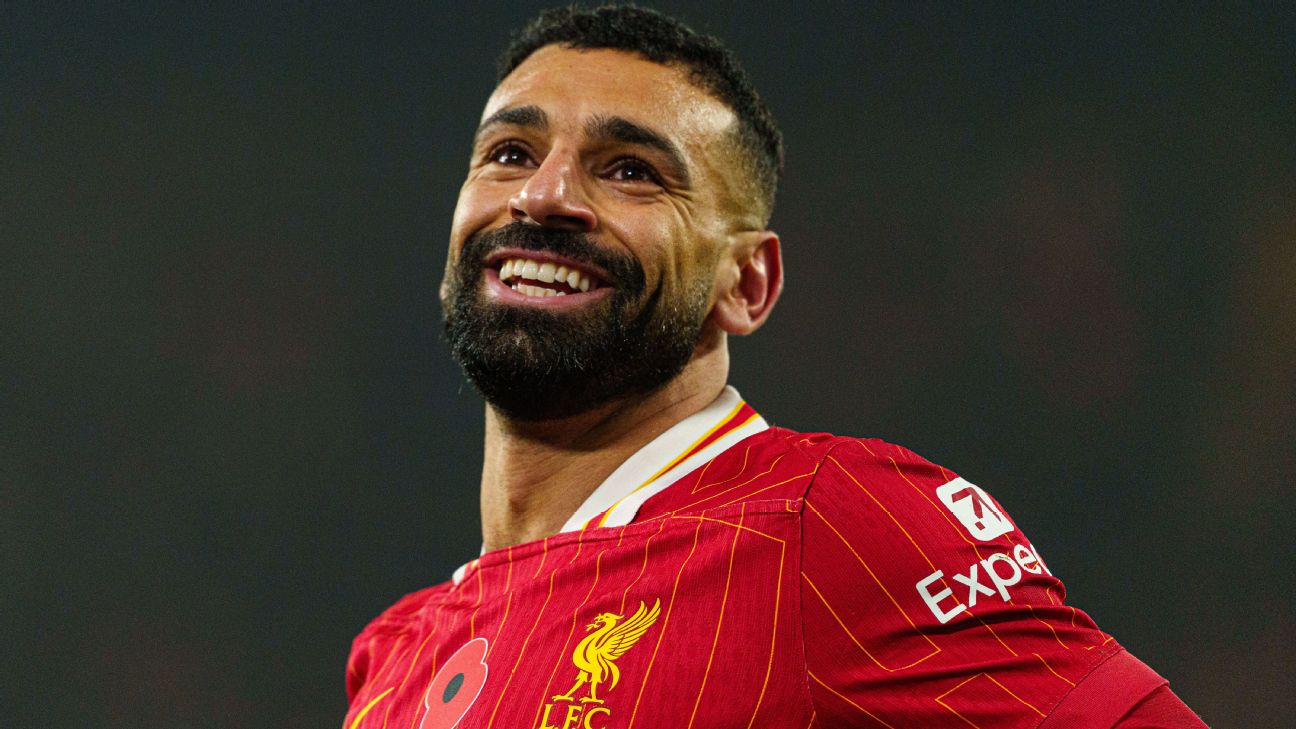As Gregg Berhalter spoke about his first roster since being rehired as U.S. men’s national team manager in June, a couple of realities collided. There was plenty that was familiar, not the least of which was the sight of him officially back in charge for a second World Cup cycle.
There were familiar faces, with Christian Pulisic, Weston McKennie and Yunus Musah all in the frame ahead of next week’s friendlies against Uzbekistan and Oman. All told, 12 World Cup veterans are in the squad, as are 16 of those who took part in the Concacaf Nations League triumph in June.
But that familiarity wasn’t enough to overshadow how much has changed. Some of that is emotional, and some of it is down to the players available.
The task of Berhalter repairing the relationship with Gio Reyna — who is still working his way back to full fitness after sustaining a leg fracture in June and isn’t on the roster — continues to hang over the program. Berhalter said he had already apologized to the team for the circumstances that led to him speaking in January at a leadership summit about a player he nearly sent home from the World Cup, which was quickly identified as Reyna.
“It was never about names,” Berhalter told reporters on Wednesday. “It was more about an example of our strong team culture, and I felt that if it hurt one player, then it’s worth apologizing to the entire group, and that’s what I did.”
– Stream on ESPN+: LaLiga, Bundesliga, more (U.S.)
That communication hasn’t extended to Reyna, at least in a meaningful way. Berhalter took issue with the characterization that Reyna hadn’t been responsive, just that when it comes down to him having that first extended sit-down with the player, the timing and environment need to be right.
“It’s understanding the sensitivity around the issues, understanding the right time in the right way,” Berhalter said. “I think again, for us, we’re committed to every single player in this player pool, and for us, it’s about how do we maximize communication with them, and target it in a way that we’re getting the most out of each and every player. So for this, it’s just being a little bit more thoughtful, a little bit more sensitive to the past, and I look forward to having conversations with him.”
Getting Reyna back is critical for the U.S., as is deciding what his role will be. The U.S. attack looked much more dynamic at the Concacaf Nations League with Reyna taking on a central attacking role, rather than on the wing. Yet Berhalter was quick to laud the “tremendous engine” that exists when Tyler Adams, McKennie and Musah are in midfield.
Something will have to give, and how Berhalter solves that particular tactical conundrum is one of the bigger issues. Reyna’s absence is by no means the only significant one with seven more players all missing due to injury or illness. Adams is in a similar situation as Reyna, working his way back from injury, though starting last week Reyna is at least training with Borussia Dortmund. Adams, who signed with AFC Bournemouth last week, is further away.
Josh Sargent earned this window’s hard luck award, injuring his ankle while scoring in Norwich City’s 4-0 win last weekend over Huddersfield.
There have been changes of address too for some of the team’s key players. Timothy Weah is alongside McKennie at Juventus. Folarin Balogun is with AS Monaco, while both Musah and Pulisic landed at AC Milan.
The change of scenery seems to have benefited Pulisic most. He scored two goals in Milan’s first two matches. Better yet, there is a joy and confidence in his game that was too often missing during his last season at Chelsea.
“He feels valued in his environment,” Berhalter said about Pulisic. “And those are two key components to performing well, having confidence and feeling valued.”
With Balogun’s move to Monaco complete, it remains to be seen how that will work. The Monégasque club currently tops the Ligue 1 table, and are the league’s top scorers, so the competition figures to be stiff.
Along with Reyna’s move to the middle, Balogun’s addition seems the most surefire way to move the U.S. attack forward. He was as advertised in the Nations League final, scoring against Canada. Now it is up to Berhalter to continue his integration.
“It’s our obligation to work around what [Balogun] can bring us because we know he’s got a tremendous amount of talent,” Berhalter said. “I’ve already talked to him about what he thinks his best skill sets are, and best how to get him involved and active. [He’s a] very dynamic player running behind the line, good in the penalty box, so these are all things that we know are going to help our group be successful.
“We’re very much open to working around the players and taking their strengths and integrating that into what we do.”
As is always the case, the aforementioned absences have opened opportunities for others. Inter Miami’s Benjamin Cremaschi has been arguably the biggest beneficiary of Lionel Messi’s arrival in South Florida, tallying a goal and four assists. But Berhalter insisted that he’s had his eye on the Miami native for longer than that, first noticing him in a pre-World Cup camp when the U.S. was training alongside the U-20s. Cremaschi holds dual U.S.-Argentina citizenship, making him another dual national target of Berhalter’s.
“He immediately caught my eye just for his tenacity and his relentlessness,” Berhalter said. “He’s a kid that was playing out of position in that camp, playing winger, sometimes forward, but he never quit. He never gave up. He kept running. I mean, he was running himself silly. And it really showed me what his mindset was like, and I was really impressed with that.”
The biggest surprise was the call-up of Palermo left-back Kristoffer Lund, a former Denmark youth international who is in the process of filing a one-time switch with FIFA to represent the USMNT. Berhalter said Lund has been on the U.S. radar for the past two years, but the World Cup came a bit too soon. Now Berhalter believes Lund is ready to make an impression.
“We think that [Lund] could potentially fill the void that we had at the left-back position in terms of our depth,” Berhalter said. “You know, it’s something that we’ve struggled at for a while. Antonee Robinson has been the clear starter, is a fantastic player. But no one’s really grabbed that second position, and we’re seeing what he can do and if he can challenge for that spot.”
Such possibilities are what make this point in the World Cup cycle especially intriguing, though there will be competition. Such possibilities are what make this point in the World Cup cycle especially intriguing. The likes of Joe Scally and Luca de la Torre are going to do what they can to maintain their spots in the U.S. depth chart. Rising talents like New England Revolution’s Noel Buck and Real Salt Lake’s Diego Luna will use Cremaschi’s call-up as added motivation.
The push and pull between continuity and change looks set to continue.



